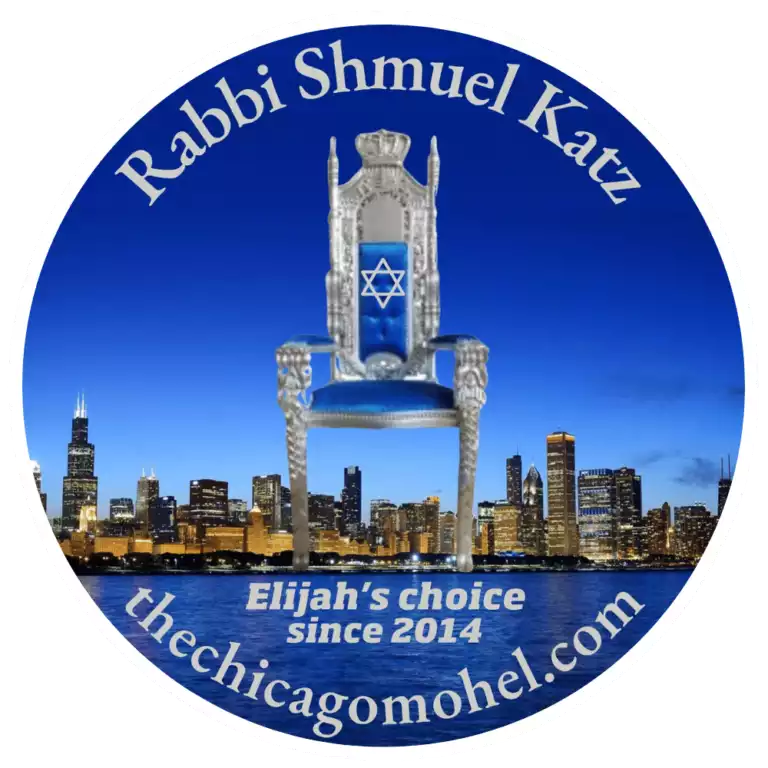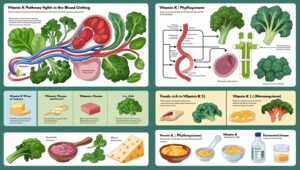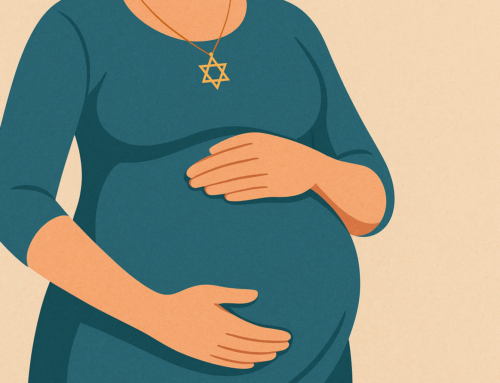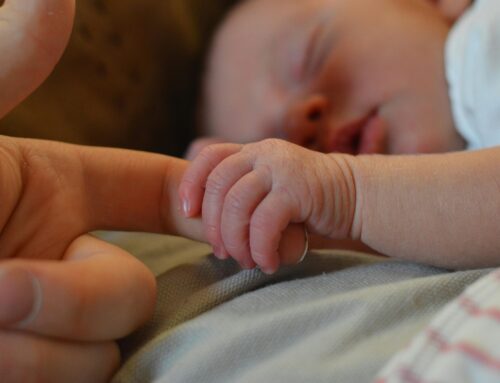Vitamin K and the Eighth Day: Science, Safety, and the Wisdom of Bris Milah (Circumcision)
As a mohel, I am privileged to be present at one of the most significant and sacred moments in a family’s life: the bris milah (or circumcision). For many parents, this moment is filled with deep emotion — and often, important medical questions. One of the most common questions I get is about the relationship between vitamin K and circumcision.
Some parents ask if it’s required. Others wonder if the bris or circumcision can be performed without it. Many are curious about how vitamin K connects to Jewish tradition and the eighth day. The most common question by far though, is “Will you perform a Bris or circumcision for our family if we chose not to give our child the vitamin K shot?” Spoiler alert: the answer is “Yes!”
This post is here to inform, explain, and honor the extraordinary intersection of medical science and Jewish wisdom.
In this article, we’ll explore the role of Vitamin K in clotting, where Vitamin K is derived from, why the Vitamin K shot is given, and why some parents choose not to administer it. We’ll also examine the fascinating overlap between medical science and Jewish tradition, especially regarding the significance of the eighth day in bris milah.
What Is Vitamin K — and Why Is It Important?
Vitamin K is a fat-soluble vitamin essential for blood clotting. It helps activate clotting factors in the liver, especially prothrombin (factor II), which is crucial for stopping bleeding.
Types of Vitamin K
- Vitamin K1 (phylloquinone): Found in leafy greens, passed in small amounts through the placenta and breastmilk.
- Vitamin K2 (menaquinone): Made by gut bacteria after birth.
Why Newborns Have Low Levels
- Vitamin K doesn’t cross the placenta efficiently.
- Newborns have sterile guts, so no K2 is made yet.
- Breastmilk contains only small amounts of K1.
This means newborns are at risk of Vitamin K Deficiency Bleeding (VKDB) — a rare but serious condition that can cause internal, external, or even brain bleeding.
Why Is the Vitamin K Shot Given?
In the 1960s, the American Academy of Pediatrics recommended a vitamin K injection after seeing cases of newborn hemorrhage. The shot delivers a large dose of K1 that the liver stores for weeks.
Types of VKDB:
- Early VKDB (within 24 hours): Usually linked to maternal medications.
- Classic VKDB (days 2–7): More common in breastfed babies.
- Late VKDB (2–12 weeks): Rare but serious, often involving brain bleeds.
The vitamin K shot nearly eliminates all three forms, particularly the dangerous late VKDB.

Natural Vitamin K and the Eighth Day
This is where Jewish tradition and biology align in a beautiful way.
Studies show that a baby’s natural clotting ability steadily rises after birth, peaking around day 8. Levels of vitamin K — and clotting factors VIII and IX — all rise together, naturally reducing the risk of bleeding.
In 1963, Dr. S.I. McMillen wrote:
“It appears that an eight-day-old baby has more available prothrombin than on any other day in his entire life.”
(None of These Diseases)
This perfectly aligns with the Torah’s command in Genesis 17:12:
“And he that is eight days old shall be circumcised among you…”
Jews have performed bris milah on the eighth day for thousands of years — long before science explained the medical benefits.

More on the Symbolism of the Eighth Day
In Jewish tradition, the eighth day is not just a random date—it carries profound symbolism.
The number seven represents the natural order (seven days of creation), while eight symbolizes something beyond nature: covenant, holiness, and connection to the divine.
By performing the bris milah on the eighth day, we’re acknowledging that this moment is not just about biology, but about sanctifying a child’s entrance into the Jewish people. It’s a reminder that every child is a bridge between the physical and the spiritual—a legacy that continues through generations.

My Practice: Circumcision With or Without the Vitamin K Shot
Let’s be clear:
I regularly perform circumcisions on babies who have NOT received the vitamin K shot.
Many parents choose this route because:
- They’re concerned about preservatives.
- They prefer a more “natural” start.
- They trust the wisdom of the Bible recommending circumcision on the eighth day.
I respect these choices. I work closely with families to ensure the bris is performed safely and with the utmost care.
When It’s Safe Without the Shot:
- No family history of bleeding disorders.
- Baby is healthy and feeding well.
- Especially when the bris (or circumcision) is performed on the eighth day or close to it.
However, if there’s a known history of hemophilia, von Willebrand disease, or other clotting disorders, I recommend discussing options with me, as well as a pediatrician or hematologist. I have successfully guided many families through a successful, joyous circumcision despite family history of missing clotting factors.

What About Oral Vitamin K?
In some countries (like the Netherlands and Germany), oral vitamin K is the standard. It’s given daily or weekly for several weeks to be effective, especially against late VKDB.
Key Points:
- Not approved in the U.S. as a complete replacement.
- Less reliable if the baby spits up or has absorption issues.
- Requires strict adherence to the schedule.
For some families, it’s a middle path between no supplementation and the shot.
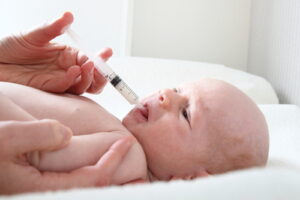
Risk and Reassurance
Parents often ask:
“If we skip the shot, should we worry?”
Here’s my answer: Most of the time, there’s no reason to be alarmed.
VKDB is rare, especially the classic form. And on the eighth day, nature provides a natural clotting advantage.
That said, I:
- Screen every baby for risk factors through questions about family history.
- Assess the baby’s health carefully before every bris or circumcision.
- Postpone the procedure if I have any concerns and consult with a pediatrician.
Your baby’s safety always comes first.

The Intersection of Wisdom and Nature
Is it a coincidence that vitamin K levels peak on the eighth day? Or is it something more?
Whether you see it as divine design, evolutionary biology, or simply an amazing alignment of tradition and science, day 8 holds a unique place in both Jewish law and medical safety.
For me, that overlap isn’t just interesting — it’s deeply meaningful. It reminds us that faith and reason can coexist beautifully.
Final Thoughts
The vitamin K decision — like many parenting choices — is deeply personal. My role as a mohel is not to persuade you, but to support you, ensuring your baby’s bris or circumcision is safe, sacred, and meaningful.
Ultimately, the decision about vitamin K is just one piece of a larger tapestry. As a mohel, my highest priority is your baby’s well-being—physically, emotionally, and spiritually. I strive to honor both modern medical knowledge and the timeless wisdom of our traditions. Together, we can create a circumcision/bris experience that is safe, meaningful, and unforgettable.
If you have questions about vitamin K, clotting, circumcision, or bris milah, I’m always happy to talk.
No pressure. No judgment. Just clear, compassionate guidance.
Contact Me
To schedule a consultation, contact me at The Chicago Mohel today.

📞 Phone: 347-794-6322
📧 Email: thechicagomohel@gmail.com
🌐 Website: thechicagomohel.com
If you would like more information, please feel free to peruse some of my other blogs, like Circumcision – Answering the Who, What, Where, When, Why and How or Hospital Circumcision vs. Mohel Circumcision: A Mother-Baby Nurse Weighs In
References
- Shearer MJ. (2009). Vitamin K deficiency bleeding in early infancy. Blood Reviews.
- Puckett RM, Offringa M. (2000). Prophylactic vitamin K for vitamin K deficiency bleeding in neonates. Cochrane Database of Systematic Reviews.
- American Academy of Pediatrics. (1961). Vitamin K prophylaxis in newborns.
- McMillen, S.I. (1963). None of These Diseases. (Book text not available online)
- van Hasselt PM, et al. (2008). Oral vitamin K prophylaxis: an update. Archives of Disease in Childhood.
